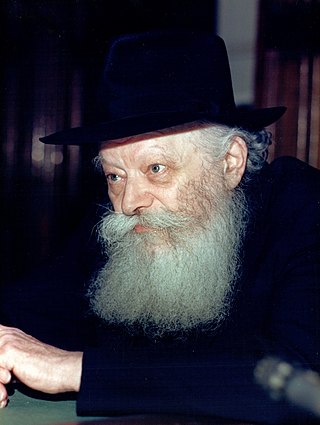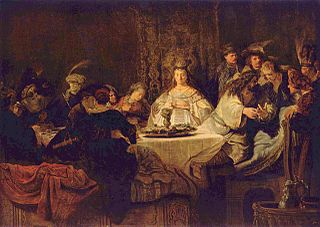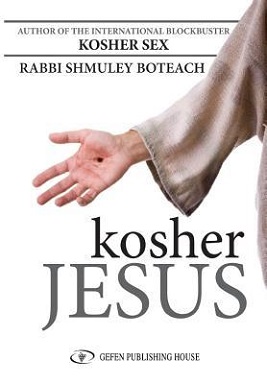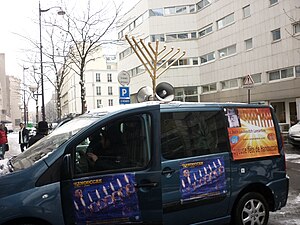
Menachem Mendel Schneerson, known to many as the Lubavitcher Rebbe or simply the Rebbe, was an Orthodox rabbi and the most recent Rebbe of the Lubavitch Hasidic dynasty. He is considered one of the most influential Jewish leaders of the 20th century.

Chabad, also known as Lubavitch, Habad and Chabad-Lubavitch, is an Orthodox Jewish Hasidic dynasty. Chabad is one of the world's best-known Hasidic movements, particularly for its outreach activities. It is one of the largest Hasidic groups and Jewish religious organizations in the world. Unlike most Haredi groups, which are self-segregating, Chabad operates mainly in the wider world and caters to secularized Jews.
Jewish religious movements, sometimes called "denominations", include different groups within Judaism which have developed among Jews from ancient times. Today, the most prominent divisions are between traditionalist Orthodox movements ; modernist movements such as Conservative, Masorti and Reform Judaism; and secular or Hiloni Jews.

Sholom Dovber Schneersohn was the fifth Rebbe of the Chabad Lubavitch chasidic movement. He is known as "the Rebbe Rashab". His teachings represent the emergence of an emphasis on outreach that later Chabad Rebbes developed into a major theme.
"Who is a Jew?" is a basic question about Jewish identity and considerations of Jewish self-identification. The question pertains to ideas about Jewish personhood, which have cultural, ethnic, religious, political, genealogical, and personal dimensions. Orthodox Judaism and Conservative Judaism follow Jewish law (Halakha), deeming people to be Jewish if their mothers are Jewish or if they underwent a halakhic conversion. Reform Judaism and Reconstructionist Judaism accept both matrilineal and patrilineal descent as well as conversion. Karaite Judaism predominantly follows patrilineal descent as well as conversion.

Yisrael Noah Weinberg was an Orthodox rabbi and the founder of Aish HaTorah.

Noahidism or Noachidism is a monotheistic Jewish religious movement based upon the Seven Laws of Noah and their traditional interpretations within Orthodox Judaism. According to the Jewish law, non-Jews (Goyim) are not obligated to convert to Judaism, but they are required to observe the Seven Laws of Noah to be assured of a place in the World to Come, the final reward of the righteous. The penalty for violating any of the Noahide laws is discussed in the Talmud, but in practical terms it is subject to the working legal system which is established by the society at large. Those who subscribe to the observance of the Noahic Covenant are referred to as Bnei Noach or Noahides. The modern Noahide movement was founded in the 1990s by Orthodox rabbis from Israel, mainly tied to Chabad-Lubavitch and religious Zionist organizations, including The Temple Institute.

Esther Jungreis was a Jewish, Hungarian-born, American author, and public speaker. She was the founder of the international Hineni organization in the United States. A Holocaust survivor and rebbetzin, she worked to return secular Jews to Orthodox Judaism.

The Yeshivah Centre is an Orthodox Jewish umbrella organisation in Melbourne, Victoria, Australia, that serves the needs of the Melbourne Jewish community. It is run by the Chabad-Lubavitch movement, until recently, under the direct administration of Rabbi Yitzchok Dovid Groner. Rabbi Zvi Telsner has been brought as the new Dayan of the Centre and Lubavitch community.

Messianism in Chabad refers to the contested beliefs among members of the Chabad-Lubavitch community, a group within Hasidic Judaism, regarding the Jewish messiah, also referred to as mashiach or moshiach. A majority of the Chabad community believe that Rabbi Menachem Mendel Schneerson, the deceased seventh Rebbe of the Chabad-Lubavitch dynasty, is the Jewish messiah. The issue remains controversial within both the Chabad movement and the broader Jewish community.

Interfaith marriage in Judaism was historically looked upon with very strong disfavor by Jewish leaders, and it remains a controversial issue among them today. In the Talmud and all of resulting Jewish law until the advent of new Jewish movements following the Jewish Enlightenment, the "Haskala", marriage between a Jew and a gentile is both prohibited, and also void under Jewish law.
Orthodox Jewish outreach, often referred to as Kiruv or Qiruv, is the collective work or movement of Orthodox Judaism that reaches out to non-observant Jews to encourage belief in God and life according to Orthodox Jewish law. The process of a Jew becoming more observant of Orthodox Judaism is called teshuva making the "returnee" a baal teshuva. Orthodox Jewish outreach has worked to enhance the rise of the baal teshuva movement.

The baal teshuva movement is a description of the return of secular Jews to religious Judaism. The term baal teshuva is from the Talmud, literally meaning "master of repentance". The term is used to refer to a worldwide phenomenon among the Jewish people.
Reform Judaism Outreach refers to the organizational and educational efforts by the Union for Reform Judaism and the Reform Movement as a whole to draw into Jewish life the non-Jewish spouses of interfaith families and seekers who are looking for a new religious home in Judaism.

Rabbi Shimon Lazaroff is the current Texas Regional Director for Texas Friends of Chabad Lubavitch, Inc. and member of the board and executive committee of Agudas Chasidei Chabad. With the direction of the Lubavitch Rebbe, Rabbi Menachem Mendel Schneerson, he established Chabad Lubavitch in Texas upon his arrival with his family in 1972.
Tza'ar ba'alei chayim, literally "suffering of living creatures", is a Jewish commandment which bans causing animals unnecessary suffering. This concept is not clearly enunciated in the written Torah, but was accepted by the Talmud as being a biblical mandate. It is linked in the Talmud from the biblical law requiring people to assist in unloading burdens from animals.

Shmuly Yanklowitz is an Orthodox rabbi, activist, and author. In March 2012 and March 2013, Newsweek and The Daily Beast listed Yanklowitz as one of the 50 most influential rabbis in America.

Kosher Jesus (2012) is a book by the Orthodox Rabbi Shmuley Boteach, focusing on the relationship between Christianity and Judaism. The book examines the rabbinic origins of the teachings of Jesus within the context of Second Temple Judaism in the 1st century and the New Testament, and compares scholarly views on the historical figure of Jesus with the theological ideals expressed by the Jewish writers of early rabbinic literature.
Jewish vegetarianism is a commitment to vegetarianism that is connected to Judaism, Jewish ethics or Jewish identity. Jewish vegetarians often cite Jewish principles regarding animal welfare, environmental ethics, moral character, and health as reasons for adopting a vegetarian or vegan diet.

The Jewish community of Houston, Texas has grown and thrived since the 1800s. As of 2008 Jews lived in many Houston neighborhoods and Meyerland is the center of the Jewish community in the area.













